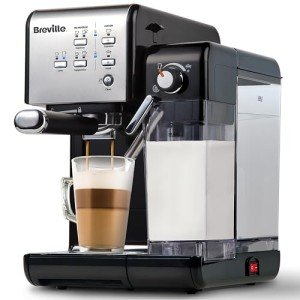14 Questions You Shouldn't Be Afraid To Ask About Heat Exchange Espresso Machines
Heat Exchange Espresso Machines: A Comprehensive Guide
Espresso machines have actually progressed considerably throughout the years, accommodating the requirements of home baristas and coffee specialists alike. Amongst Online Espresso Machines Store , heat exchange espresso machines have actually gotten appeal due to their ability to provide consistent efficiency and extraordinary brew quality. In this article, we will explore the operations, benefits, and essential features of heat exchange espresso machines, supplying a detailed understanding for both prospective purchasers and coffee lovers.
Comprehending Heat Exchange Technology
Heat exchange espresso machines operate on a special concept that allows simultaneous water heating for brewing and steaming. They are geared up with a single boiler that uses a heat exchanger system. This function is significant as it makes it possible for users to brew espresso while steaming milk concurrently, promoting effectiveness in the coffee-making process.
How Does a Heat Exchange Espresso Machine Work?
The procedure begins with the machine's water inlet filling the boiler. As the water warms up, it turns to steam. The ingenious heat exchanger utilizes hot steam to heat additional water in a separate passage developed particularly for the brew group. This implies that water can reach the ideal developing temperature level without waiting on the boiler to change. The key steps consist of:
- Water Fill: Water is drawn into the boiler.
- Heating Process: The boiler warms up as water is transformed into steam.
- Heat Exchange: Steam heats water in the heat exchanger tube.
- Brewing: Water from the heat exchanger is pushed through coffee premises, extracting the flavors required for an abundant espresso.
This procedure permits quick temperature modifications and enhanced coffee extraction.
Benefits of Heat Exchange Espresso Machines
Heat exchange espresso machines provide a number of advantages, especially for those seeking to optimize their coffee experience. Here are some essential advantages:
- Simultaneous Brewing and Steaming: Users can brew espresso while steaming milk, making it perfect for busy cafes and home baristas who value effectiveness.
- Temperature Stability: The boiler's steam pressure helps keep a stable temperature level, which is vital for consistent espresso extraction.
- Adaptability: The design permits fast switching in between brewing and steaming, making it easier to create various coffee beverages, from lattes to coffees.
- User-friendly: Models frequently feature available controls, making it practical for both beginners and experienced baristas to produce quality drinks.
- Professional Quality: Heat exchange machines are typically used in commercial settings, offering users with high-quality brewing efficiency in the house.
Key Features to Look for in Heat Exchange Espresso Machines
When thinking about the purchase of a heat exchange espresso machine, there are several features that one must consider:
- Build Quality: Look for machines made of resilient materials, such as stainless-steel or brass, making sure durability.
- Boiler Size: A bigger boiler will hold more water and sustain higher output over time.
- PID Temperature Control: This function assists maintain consistent brew temperature levels, which can boost the coffee-making procedure.
- Group Head Design: Machines with a saturated or semi-saturated group head provide better temperature level stability.
- Alleviate of Use: User-friendly interfaces and instinctive controls enhance the general experience for baristas at all ability levels.
- Steam Wand Quality: An excellent steam wand with proper insulation and flexibility allows for better texturing of milk.
- Water Reservoir Size: Depending on your needs, think about how frequently you desire to fill up the water tank.
Contrast of Popular Heat Exchange Espresso Machines
To much better understand the choices offered in the market, below is a contrast table of some popular heat exchange espresso machines:
Machine Model
Boiler Size
PID Control
Rate Range
User Ratings
Profitec Pro 700
2.0 L
Yes
₤ 2,000-₤ 2,500
9.5/ 10
Rocket Espresso R58
1.8 L
Yes
₤ 2,400-₤ 2,800
9.4/ 10
Elekta Bianca
1.8 L
Yes
₤ 2,500-₤ 3,000
9.6/ 10
La Spaziale S1 Vivaldi II
1.5 L
Yes
₤ 1,800-₤ 2,200
9.2/ 10
Bezzera Magica
1.2 L
No
₤ 1,600-₤ 1,800
9.0/ 10
Frequently Asked Questions About Heat Exchange Espresso Machines
What is the main difference between a heat exchange and a dual boiler espresso machine?
While both types can brew espresso and steam milk at the same time, dual boiler machines have separate boilers for brewing and steaming. On the other hand, heat exchange machines make use of a single boiler and a heat exchanger to attain the very same function.
Are heat exchange machines suitable for novices?
Yes! Lots of heat exchange machines are created with easy to use functions, making them available for novices. With correct assistance and practice, users can quickly produce quality espresso.
What type of upkeep do heat exchange espresso machines need?
Routine maintenance consists of descaling, cleaning up the boiler, checking seals and gaskets, and keeping the group head tidy. Regular upkeep ensures longevity and consistent performance.
Can I use a heat exchange machine for different kinds of coffee drinks?
Definitely! Heat exchange machines allow users to create a range of coffee beverages, including espresso, lattes, cappuccinos, and more.
Heat exchange espresso machines represent a blend of development and tradition, offering coffee lovers with the tools needed for crafting the ideal cup. Their capability to concurrently brew and steam, combined with precise temperature level control, makes them an engaging option for both home baristas and professionals. With the best understanding on features and maintenance, users can open a world of splendid coffee experiences, ensuring that each sip is as wonderful as the last.
